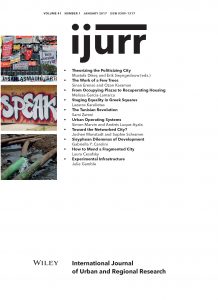In sub-Saharan African (SSA) cities like Maputo, land commodification is predictably fueled by plans for aspirational infrastructure serving elites. What is rather more peculiar, however, is the way in which the promotion of some fiscal policy reforms can also inadvertently support land commodification and the uneven development it (re)produces. This article describes how efforts to host both democratic fiscal reforms (via localized exercises like participatory budgeting) and to tap into international capital circuits to stir economic development (via aspirational infrastructure and urban redevelopment plans) can produce a Sisyphean dilemma. While gains in ordinary infrastructure investments (e.g. wells, water pumps) were achieved democratically in Maputo’s KaTembe district with the participatory budget, these material (and political) improvements have been rendered irrelevant by better funded aspirational infrastructure projects for KaTembe (e.g. bridges, high-rise residential buildings, tourist facilities) supported by more opaque decisions made by the national government without residential input. Given the wide embrace of participatory budgeting in contexts of weak democracy across SSA cities and elsewhere, Maputo’s experience serves as a timely alert of the risks run when this popular exercise is prematurely promoted, especially when wider-scaled property tax reforms could better redress uneven and undemocratic urban development.
Details
Written by:
Gabriella Y. Carolini
Digital Object Identifier (DOI)
10.1111/1468-2427.12500
About DOI

